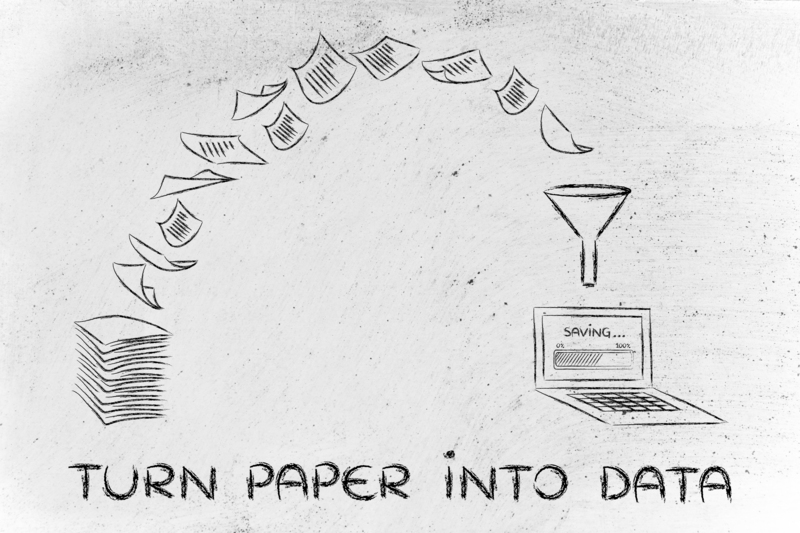Unlock Savings with Pro Tricks for Bulky Waste Items
Dealing with bulky waste items--those awkward old sofas, fridges, mattresses, wardrobes, and garden debris--often eats up time, space, and money. With rising disposal fees and environmental concerns, mastering effective, budget-friendly methods to handle large waste can make a huge difference for households, landlords, and businesses alike. If you want to unlock savings while clearing bulky waste, this in-depth guide reveals expert hacks, actionable tips, and little-known resources to help you save money, avoid fines, and help the planet.

Understanding Bulky Waste: What Exactly Qualifies?
Before diving into cost-saving strategies, let's clarify what counts as bulky waste. Local councils, private collectors, and recycling centers typically define bulky items as "waste too large for standard kerbside collection." That includes:
- Furniture: sofas, mattresses, beds, wardrobes, bookcases
- White goods: fridges, freezers, washing machines, dishwashers
- Large electricals: televisions, cookers, tumble dryers
- Carpets and rugs
- Outdoor items: sheds, trampolines, lawnmowers
- Unusually large bags or bundles of garden waste, wood, or metal
Many local authorities exclude daily household waste and hazardous materials from their bulky collections, so it's vital to check guidelines before booking any service.
Why Bulky Waste Disposal Is So Expensive
Understanding why the cost is so high gives insights into where savings can be unlocked. The main reasons for high bulky waste collection costs are:
- Weight and size - Higher disposal fees at landfill or recycling centers for bulkier items.
- Handling - More labor or specialized vehicles to collect large, heavy, or awkward objects.
- Compliance - Legal requirements for recycling/disposal, especially with electricals and hazardous materials.
- Limited capacity - Many municipal services have limits on annual collections or number of items per booking.
But don't let these challenges put you off--there are smart ways to control these costs. Let's discover how!
Pro Tricks: How to Save on Bulky Waste Collection
1. Take Advantage of Council Services--But Be Strategic
Many local authorities offer discounted or even free bulky waste collections, usually limited to a set number of times per year or certain types of item. To optimize, you should:
- Book multiple items together: Most councils charge per collection, not per item. Grouping items saves repeat fees.
- Check annual limits: Max out your yearly allocation, especially if you're downsizing or renovating.
- Time your bookings: Queue up for spring-clean or post-Christmas collections when councils may schedule extra slots.
2. Explore Private Collectors and Compare Quotes
If the council is booked up, or your items aren't eligible, search for fully licensed waste carriers. Here's how to get the best deal:
- Get at least three quotes and check customer reviews.
- Opt for weight, not volume pricing if your items are especially heavy (e.g., solid wood, metal machinery).
- Negotiate shared collections: If nearby neighbours have items, group pickups for bulk discounts.
- Double-check licenses: Only use Environment Agency-registered operators to avoid fines for fly-tipping.
3. Break Down and Prepare Items Yourself
You can often slash costs by making bulky waste more manageable:
- Disassemble furniture: Remove legs, break down bed frames, or cut up sofas for easier handling.
- Bundle garden waste: Chop branches and tie securely--some councils only accept bagged or bundled green waste.
- Remove fridge/freezer doors: This is sometimes required for recycling/safety and can reduce collection charges.
4. Take Items to the Recycling Centre Yourself
Most household waste recycling centers (HWRCs) accept bulky waste drops from residents for free or at a fraction of collection cost. Remember:
- Check opening hours and documentation: Some sites require proof of residence or pre-booking.
- Use a van or trailer: Borrow or rent if your car is too small, but some sites need permits for large vehicles.
- Pre-sort materials: Sort metal, wood, electricals and general waste to speed up unloading and recycling.
5. Tap into Free and Low-Cost Reuse Networks
Why pay to dispose of items when someone else might put them to good use? Try:
- Charity shops and social enterprises: Many collect furniture, appliances, or bikes for free--and some offer collection receipts for tax deductions.
- Reuse platforms: List items on Freegle, Freecycle, Facebook Marketplace, or local WhatsApp groups. You'd be amazed what others will collect, repair, upcycle or repurpose.
- Community repair cafes: Some areas have volunteer groups keen to restore or strip down items for reuse or resale.
6. Look for Local Authority Swap Shops and Giveaway Events
Many councils now run reuse days, swap shops, or "bring and take" events for furniture, bikes, and other large household items. Not only can you offload unwanted goods at no cost, but you might pick up a needed item free, too!
7. Consider Paid House Clearance--But Empty Cupboards First
If you need a whole house cleared (e.g., after bereavement or for a rental handover), professional clearance firms offer an all-in-one service. Here's how to keep it affordable:
- Remove valuables and reusable small items first: Sell or donate what you can.
- Ask about recycling rates: Some companies deduct for goods sold or recycled, lowering your overall bill.
- Request a cost breakdown: Clarify charges for waste versus resale, and make sure all fees are transparent.
Sneaky Extra Savings: Little-Known Bulky Waste Hacks
Council Tax and Housing Benefit Concessions
Some councils offer reduced rate or free bulky waste removal for low-income households, disabled residents, or pensioners. If you receive council tax reduction, universal credit, or similar benefits, it's worth inquiring.
Group Buys for Private Collection Services
If multiple neighbours need collections at the same time, private waste collection firms may offer "round robin" discounts for grouped addresses--saving everyone money and cutting vehicle emissions.
Negotiate with Landlords or Property Managers
If you're renting, check your tenancy agreement and ask your landlord or agent about their preferred bulky waste disposal method--they may have service contracts or be willing to contribute for end-of-tenancy clearances.
Seasonal Discounts and Offers
Private bulky waste collectors often run special promotions in spring, autumn, and after major public holidays when demand peaks. Sign up for email alerts or follow local firms on social media to catch deals.
Common Mistakes to Avoid When Disposing of Bulky Waste
- Dumping without checking licensing: Fly-tipping is illegal and carries hefty fines. Always confirm your collector's waste carrier license.
- Missing council deadlines: Many local authority slots fill up weeks in advance--plan ahead.
- Overfilling skips: Skips are sized for general waste, not oversized furniture or white goods; overfilling is against regulations and may incur surcharges.
- Ignoring hazardous materials: Fridges, TVs (with cathode ray tubes), and some soft furnishings have special disposal requirements.
- Paying for collection when items are easily reusable: Try giving away or selling before paying to dispose.
Environmental Benefits: Responsible Bulky Waste Management
Being sustainable when disposing of large items isn't just about saving money--it's about protecting our planet. Here's how your choices matter:
- Reuse before recycling: The most environmentally friendly option is rehoming or repurposing usable items.
- Proper recycling: Appliances, metals, and electrical items can be dismantled for valuable materials.
- Avoid illegal fly-tipping: Illegal dumping pollutes landscapes and costs taxpayers millions in clean-up.
- Promote a circular economy: Local reuse networks foster community sharing and reduce pressure on landfill sites.
Bulky Waste: Frequently Asked Questions
Can I dispose of bulky waste for free?
Yes, in many areas residents can use council household waste recycling centers (HWRCs) at no or minimal cost. Free collections may be available for certain groups--contact your local authority to confirm.
What items are not accepted in bulky waste collections?
Most bulky waste schemes exclude hazardous materials (chemicals, paint, asbestos), construction rubble, car parts, and sometimes upholstered furniture with fire retardants. Always check local rules.
Do charity shops or reuse networks take everything?
Not all reusable items are accepted--hygiene, condition, and fire safety standards apply. Call ahead for delivery or collection policies.

Key Takeaways: Bulky Waste Savings Unlocked
- Plan ahead: Book council services in advance and group multiple items to lower costs.
- DIY where possible: Break down furniture and transport what you can to recycling centers for free or cheap disposal.
- Leverage reuse platforms: Always try to give away or sell bulky items before paying to dump.
- Shop around: Compare private collectors, ask about group discounts, and check for seasonal deals.
- Stay compliant: Avoid illegal dumping by ensuring collectors are fully licensed and following local rules.
Unlock Even More Savings--Get Started Today!
Clearing out large, unwanted home items doesn't have to break the bank or harm the environment. By using professional tips, reusable networks, and alternative collection options, you can handle even the bulkiest of waste with maximum savings and minimum hassle. Whether you're moving, renovating, or spring-cleaning, keep these expert strategies in mind to unlock easy, ethical, and economical bulky waste solutions.
Unlock your savings today--with professional tricks and a little planning, bulky waste is no longer a big problem!